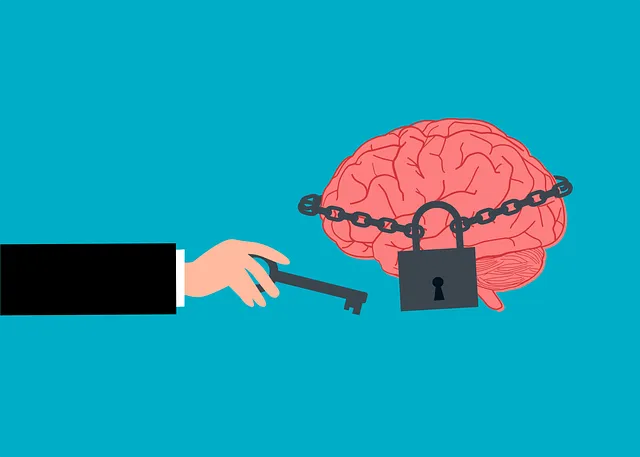Mental wellness self-assessment tools at centers like the Kaiser Permanente mental health center in Parker are transforming healthcare with personalized care plans, cultural sensitivity, and effective communication. These tools, combining evidence-based practices with community outreach, enhance accessibility and care quality. The Parker center leads the way in developing innovative assessment strategies, including Stress Management Workshops and Empathy Building, to provide tailored interventions and promote mental wellness through structured methodologies and validated scales. This proactive approach empowers patients, improves outcomes, and reduces stigma by fostering open conversations about mental health.
Mental wellness self-assessment tools play a pivotal role in empowering individuals to take charge of their mental health. This article explores the development of such tools, highlighting key aspects like understanding the growing need, learning from pioneering initiatives at Kaiser Permanente Mental Health Center Parker, and adopting effective methodologies and best practices. We also delve into successful implementation strategies and the profound impact these personalized assessments have on enhancing overall mental wellness.
- Understanding the Need for Self-Assessment Tools: A Comprehensive Overview
- Kaiser Permanente Mental Health Center Parker: A Pioneering Approach
- Developing Effective Self-Assessment Tools: Methodologies and Best Practices
- Implementation and Impact: Enhancing Mental Wellness with Personalized Assessments
Understanding the Need for Self-Assessment Tools: A Comprehensive Overview

Mental wellness self-assessment tools play a pivotal role in identifying and addressing individual needs within the healthcare landscape, particularly at renowned centers like the Kaiser Permanente mental health center in Parker. As a comprehensive approach to mental healthcare gains prominence, these tools become essential for both patients and providers. They empower individuals to take an active role in their mental well-being by providing self-reflection points and insights that can guide personalized care plans.
The development of such tools requires careful consideration, especially when navigating the diverse cultural backgrounds of patients. Cultural sensitivity in mental healthcare practice is crucial, ensuring these assessments are inclusive and respectful. Effective communication strategies and community outreach program implementations also contribute to their success. By incorporating these elements, self-assessment tools can enhance accessibility and quality of care, fostering a supportive environment for individuals seeking support from Kaiser Permanente or similar institutions.
Kaiser Permanente Mental Health Center Parker: A Pioneering Approach

The Kaiser Permanente Mental Health Center in Parker has been at the forefront of innovative mental wellness self-assessment tools development. Their approach is deeply rooted in a comprehensive understanding of individual and community needs, leveraging evidence-based practices to create tailored interventions. The center’s expertise lies in integrating diverse strategies such as Stress Management Workshops Organization, Crisis Intervention Guidance, and Empathy Building Strategies into their assessment process.
By focusing on these multifaceted techniques, Kaiser Permanente Mental Health Center Parker ensures that individuals not only receive accurate assessments but also gain practical tools for coping with everyday challenges. This holistic approach emphasizes the importance of personal growth and resilience, reflecting a commitment to fostering mental wellness within the community.
Developing Effective Self-Assessment Tools: Methodologies and Best Practices

Developing effective self-assessment tools is a critical step in enhancing mental wellness and personal growth. At the Kaiser Permanente mental health center Parker, experts emphasize structured methodologies to ensure accurate evaluations. These tools should be designed to capture individuals’ emotional, cognitive, and behavioral patterns over time, providing a comprehensive view of their mental state. One widely recognized approach is the use of validated assessment scales tailored to specific concerns, such as anxiety or depression, offering reliable data for clinical decisions.
Best practices involve integrating diverse methodologies like questionnaires, interviews, and observations to gather holistic information. For instance, combining self-report measures with structured clinical interviews allows for a more nuanced understanding, especially when addressing complex issues like trauma (Trauma Support Services). Encouraging clients to reflect on their Self-Care Practices can also be an effective strategy, as it promotes awareness and empowers individuals to take charge of their mental wellness. This multi-faceted approach ensures that assessment tools are not only valid but also sensitive to the unique needs and experiences of each individual.
Implementation and Impact: Enhancing Mental Wellness with Personalized Assessments

The implementation of personalized mental wellness self-assessment tools has been a game-changer in the healthcare industry, particularly at Kaiser Permanente mental health centers like Parker. These innovative assessments go beyond generic questionnaires by offering tailored insights into an individual’s unique mental health landscape. By incorporating advanced algorithms and data analysis, these tools can accurately identify subtle changes in mood patterns, providing early detection of potential mental illness issues.
This personalized approach not only improves patient outcomes but also plays a significant role in reducing the stigma associated with mental illnesses. By empowering individuals to take charge of their mental wellness, these assessments encourage proactive Mood Management. Moreover, they foster an environment conducive to open conversations about mental health, thereby strengthening Mind Over Matter principles and helping individuals develop effective coping strategies.
The development of mental wellness self-assessment tools, as demonstrated by innovative programs like those at the Kaiser Permanente Mental Health Center in Parker, is a game-changer in personalized healthcare. By utilizing effective methodologies and best practices, these tools offer accessible, comprehensive evaluations that empower individuals to take charge of their mental health. The impact of such initiatives is profound, fostering greater self-awareness and enabling targeted interventions, ultimately enhancing overall well-being. With ongoing advancements, these assessments have the potential to revolutionize mental healthcare accessibility and quality worldwide.






